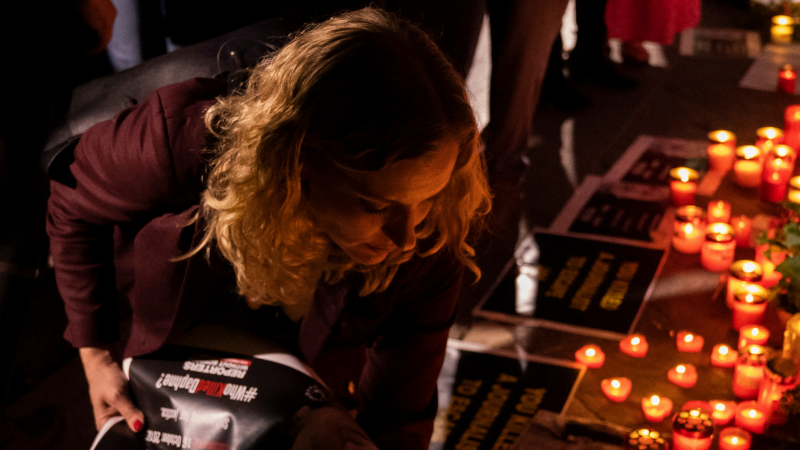Reporters Without Borders (RSF) Director of Campaigns Rebecca Vincent has joined Dutch MP Pieter Omtzigt in calling for increased pressure to fully implement the recommendations of the Daphne Caruana Galizia public inquiry.
In a tweet on Tuesday, she said that Omtzigt was right in asking for the Council of Europe to “hold Malta to account for implementing the inquiry’s recommendations”, now that it has been “Four years after the landmark PACE resolution that proved crucial in securing a public inquiry”.
RSF, like Omtzigt, had campaigned for a public inquiry since the brutal 2017 assassination, with proponents facing heavy pushback from disgraced former Prime Minister Joseph Muscat.
Four years after the landmark PACE resolution that proved crucial in securing a public inquiry into #DaphneCaruanaGalizia’s assassination, @PieterOmtzigt rightly asks when the @coe Committee of Ministers will hold Malta to account for implementing the inquiry’s recommendations. pic.twitter.com/inSEclRHGg
— Rebecca Vincent (@rebecca_vincent) August 22, 2023
In a written question to the Council of Europe Parliamentary Assembly’s Committee of Ministers, Omtzigt, asked “When will the Committee of Ministers take action to encourage Malta to complete the implementation, to international standards, all of the recommendations of the public inquiry, ensuring transparency at all stages of the process and to ensure Malta is making sufficient progress in bringing the accused to trial without delay?”
Omtzigt noted the importance of the recommendations made by the inquiry “to address organised crime and corruption and to protect the lives of journalists and strengthen public interest in journalism.”
In 2018, RSF had doubled down on its efforts in calling for a public inquiry amid a flurry of misinformation and leaks from the investigation into the assassination. At the time, they had said “RSF asks the authorities for the utmost transparency on this issue and an independent public inquiry into the murder,” and had continued to advocate for an independent public inquiry up until its announcement by the Muscat government in 2019.
The public inquiry concluded in 2021 and presented 28 key recommendations concerning the shouldering of responsibility for the murder, the rule of law and improvements in the journalistic sector.
Of the 28 key recommendations, only one recommendation has been fully completed. Four have been addressed in an underwhelming manner, or have been only partially implemented, and the progress of three recommendations is unclear or unknown.
In 2022, prime minister Robert Abela’s government appointed a Media Experts Committee to provide recommendations and guide the implementation of 12 government legislative proposals created in response to journalistic recommendations made in the public inquiry.
Following an extended 18-month mandate, the Committee has little to show for its work, which has been mired in issues of conflicts of interest and a general lack of transparency.













Corruption is like an invasive plant. It spreads like wildfire.
What are the so-called independent institutions doing to curb this curse?
Unfortunately nothing, or very very little as this would unfold a web of criminality that our Country is inundated with.